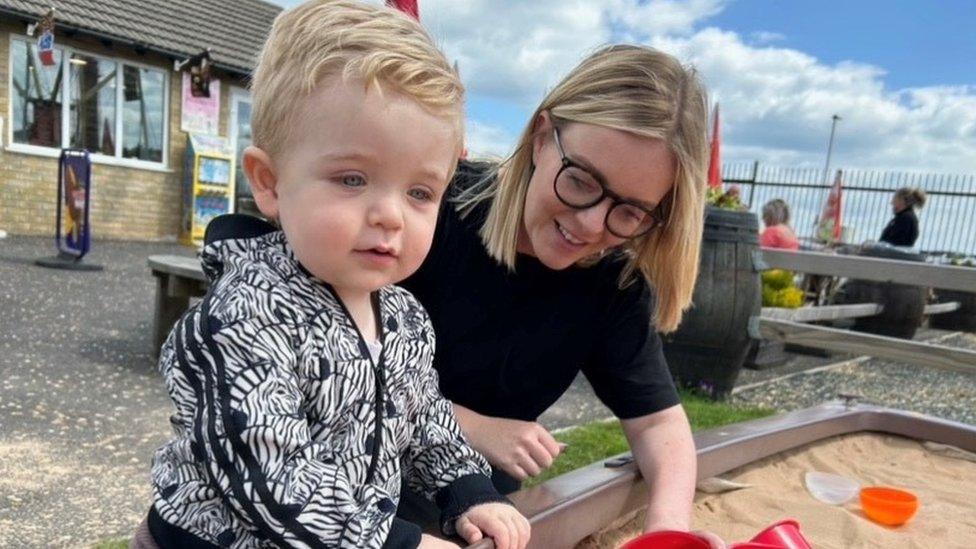‘IVF was the only chance we had of having a family’
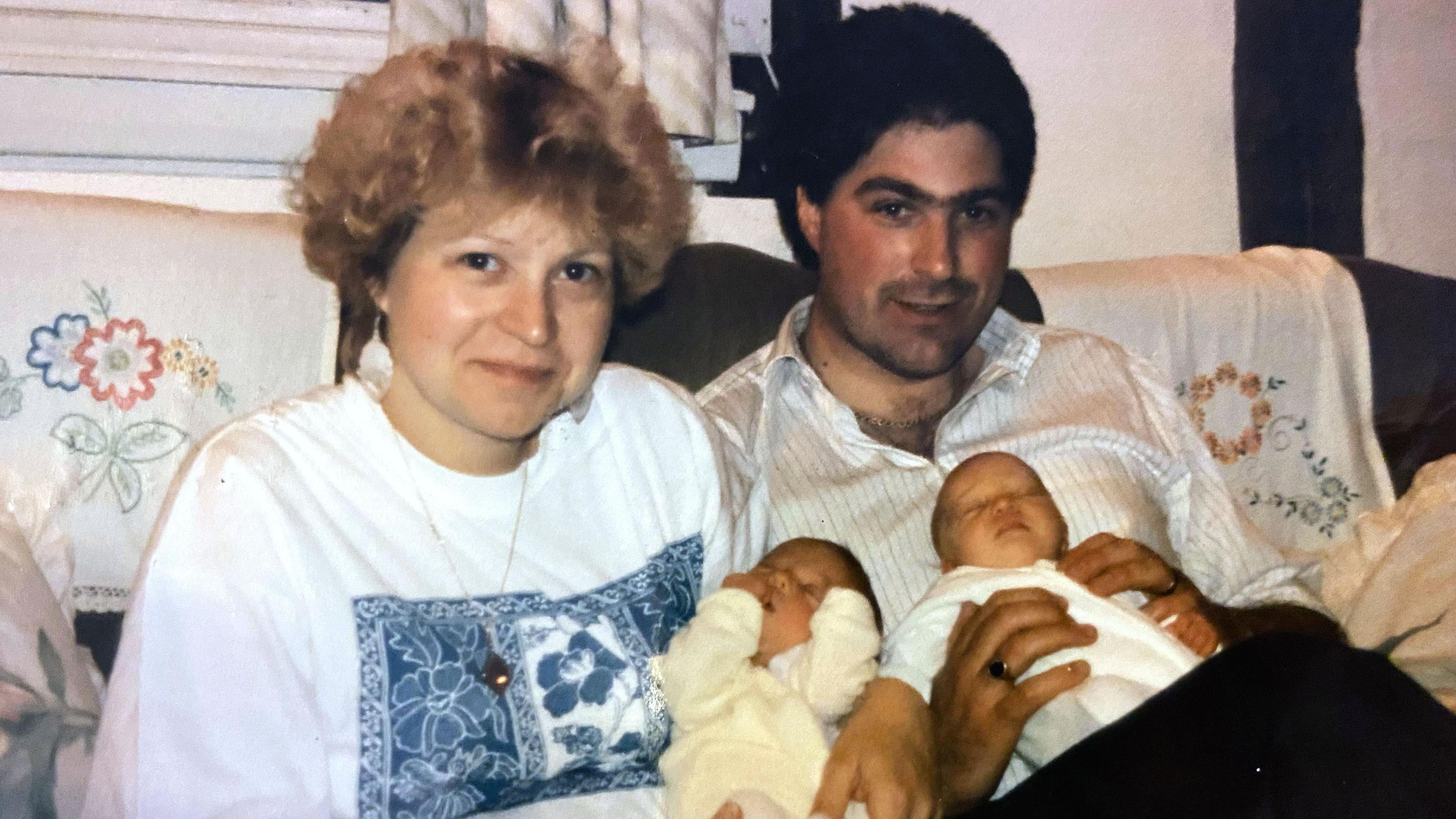
Angela and Martin Roberts holding their twin daughters Nikki and Becky in 1991
- Published
Every family has a different fertility story, but one who struggled to conceive through two generations want to tell prospective parents "it's OK to not have children naturally".
Angela and Martin Roberts, from Bedfordshire, tried for 10 years to have children of their own. But after undergoing just one round of in vitro fertilisation (IVF) treatment in 1991, their wishes finally came true and they were able to welcome twin girls into the world.
Nearly 30 years later, one of those twins - Nikki Roberts - decided to go to the same clinic at Bourn Hall, near Cambridge, to have her much-wanted second child.
The family hope new Netflix film Joy, about IVF pioneers Patrick Steptoe, Robert Edwards and Jean Purdy, whose treatment led to the first test tube baby in 1978 and the opening of Bourn Hall, will "put a spotlight on the issues of infertility".
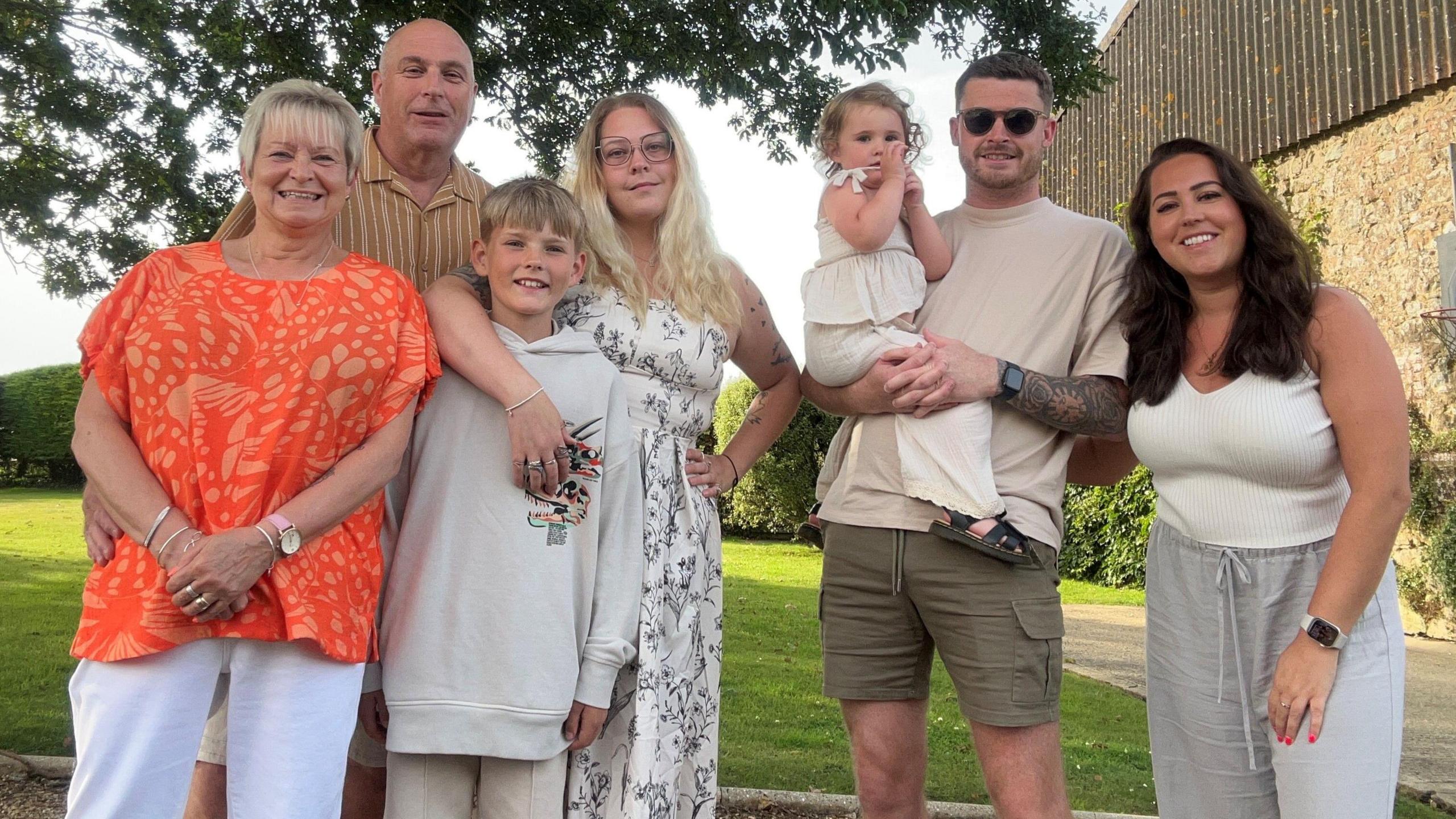
Due to the development of IVF, Angela and Martin Roberts (left) have two daughters and two grandchildren
Mrs Roberts, now 66, says after years of trying to conceive, she discovered her fallopian tubes were blocked from when she had had appendicitis and then peritonitis.
"It was never going to happen naturally," she says.
She was told by a doctor to try IVF and paid £2,000 for one round of private treatment at the Cambridgeshire facility, which was the world's first IVF clinic when it opened in 1980.
"It was the only chance we had of having a family," she says.
IVF is one technique to be able to have a baby. An egg, external is removed from the woman's ovaries and fertilised with sperm in a laboratory.
The fertilised egg, called an embryo, is then returned to the woman's womb to grow and develop.
In Mrs Roberts' treatment, 22 eggs were retrieved, 13 were fertilised and three were put back, which led to the successful birth of her twin girls.
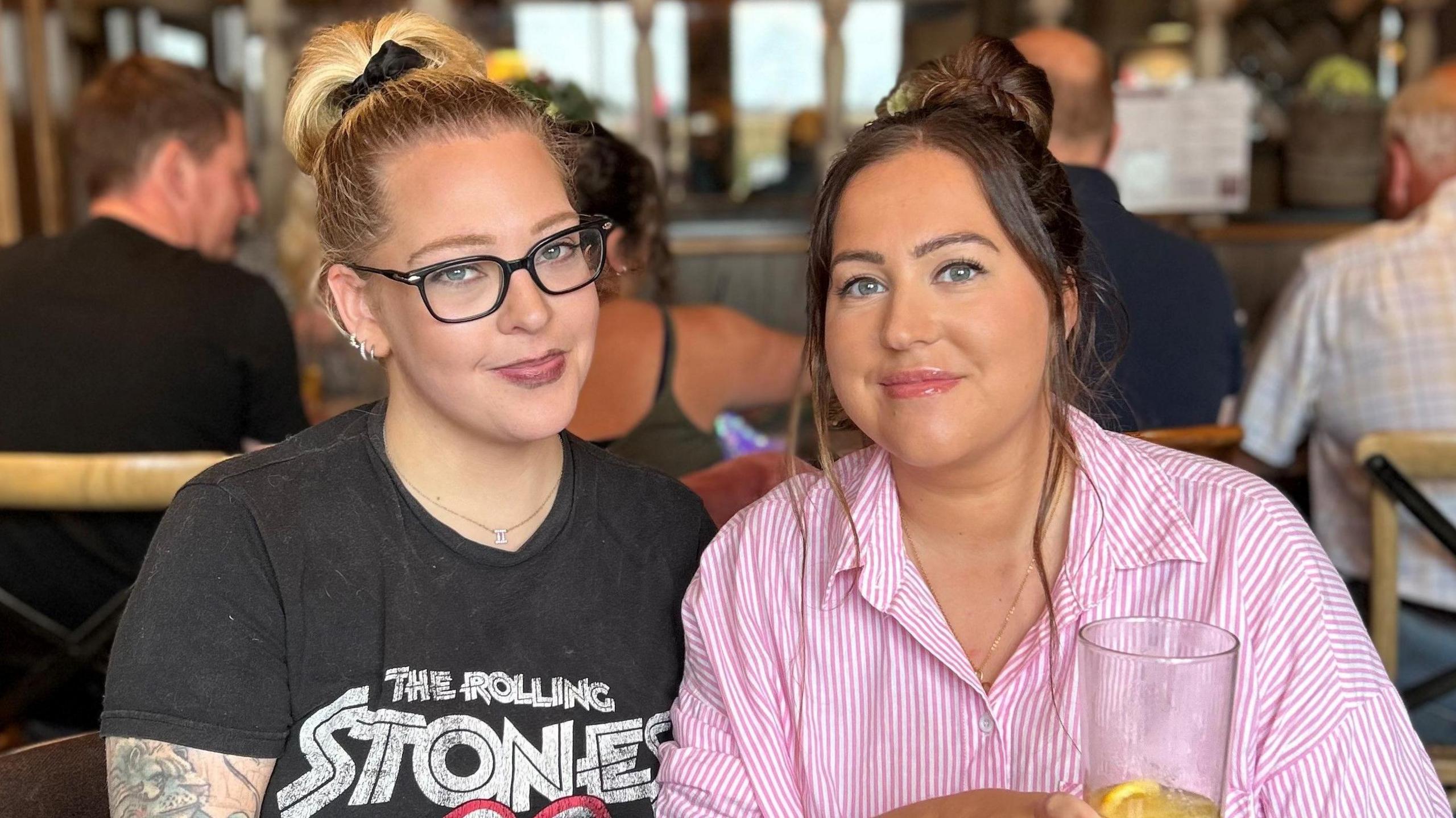
Becky and Nikki Roberts always knew they were IVF babies and used to joke about being conceived in a test tube
"Two was quite enough - it was absolutely wonderful," says the now doting mum, from Biggleswade.
But despite the good news, there was "a stigma attached" to the treatment.
"I never told anybody that I was going through the IVF journey - only my close family, none of my friends knew," she says.
However, she says she never kept it from her "wonderful daughters".
The NHS says IVF, external does not always result in pregnancy and it can be both physically and emotionally demanding.
The success rate depends on the age of the woman and there is just a 32% chance if the woman is under 35. That reduces to 4% if they are over 44.
Nikki Roberts, 33, says she had issues with her hormones as a child and unexpectedly became pregnant at 21 - going on to have her son Fin, now aged 10.
When she met her partner Liam, they tried to have a child for two years. But when they found they could only have stimulation drugs on the NHS, she says she turned to her mum and asked, "What do we do?".
Miss Roberts decided to undergo intrauterine insemination (IUI) treatment, external as it was "less invasive and cheaper".
It is a form of artificial insemination where sperm is directly put into the womb during ovulation.
Following the second round, she was able to have her daughter, Cleo, who is now aged three.
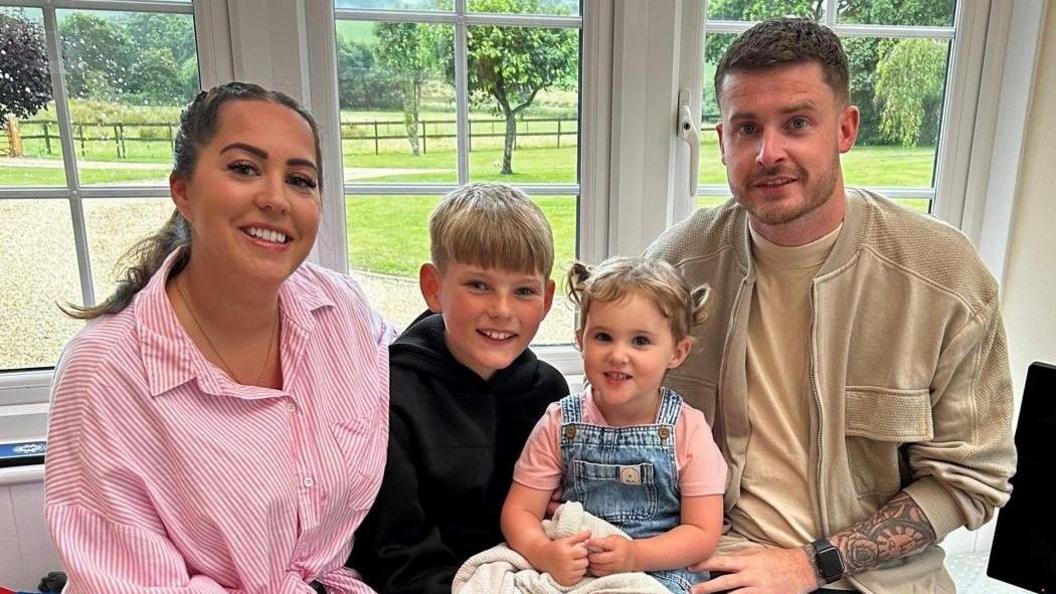
Nikki Roberts had her first child, Fin, in 2014, and underwent IUI treatment to have Cleo with her partner Liam
The film Joy, released next month, stars award-winning actors Bill Nighy, James Norton and Thomasin McKenzie.
It follows three pioneering British scientists in the 1960s and 1970s as they develop IVF treatment, which was widely considered to be controversial at the time.
For Miss Roberts, the hope is that the film will "put a spotlight on the issues of infertility".
Speaking to those in a similar situation to her family, she says: "You might feel alienated because it's not natural, that you were born in a tube, but it's OK to not have children naturally. Get all the help you can get."
Her mother adds: "Without the pioneers we wouldn't have family or grandchildren, so they're absolutely wonderful."
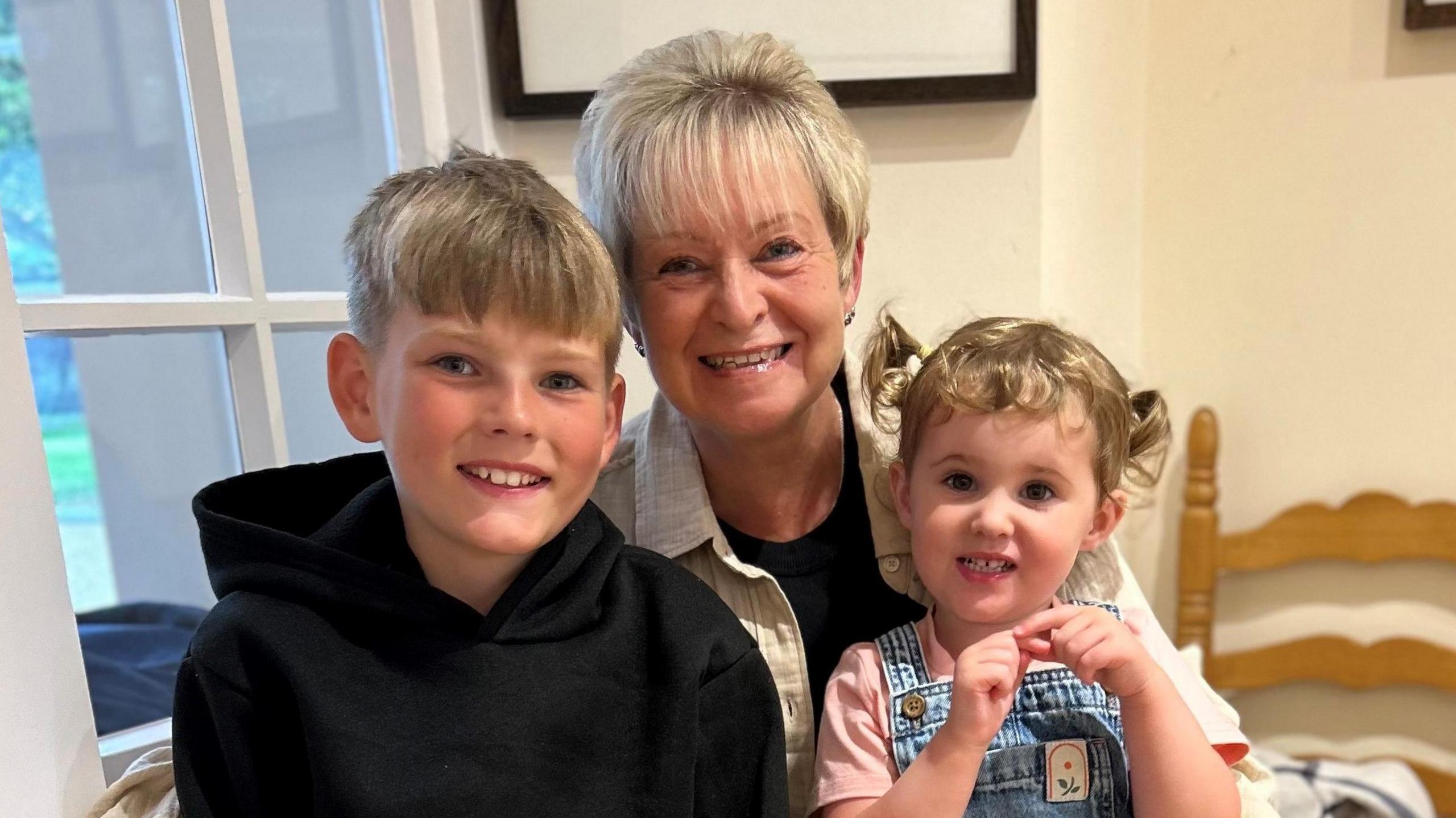
Angela Roberts says she "wouldn't be without" her family
Get in touch
Do you have a story suggestion for Beds, Herts & Bucks?
Follow Beds, Herts and Bucks news on BBC Sounds, Facebook, external, Instagram, external and X, external.
You may also be interested in
- Published24 July 2015
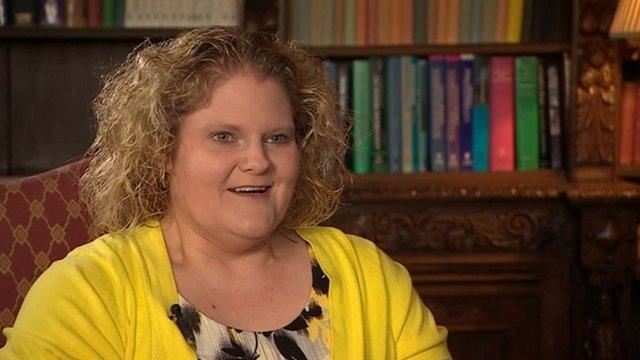
- Published18 July 2024
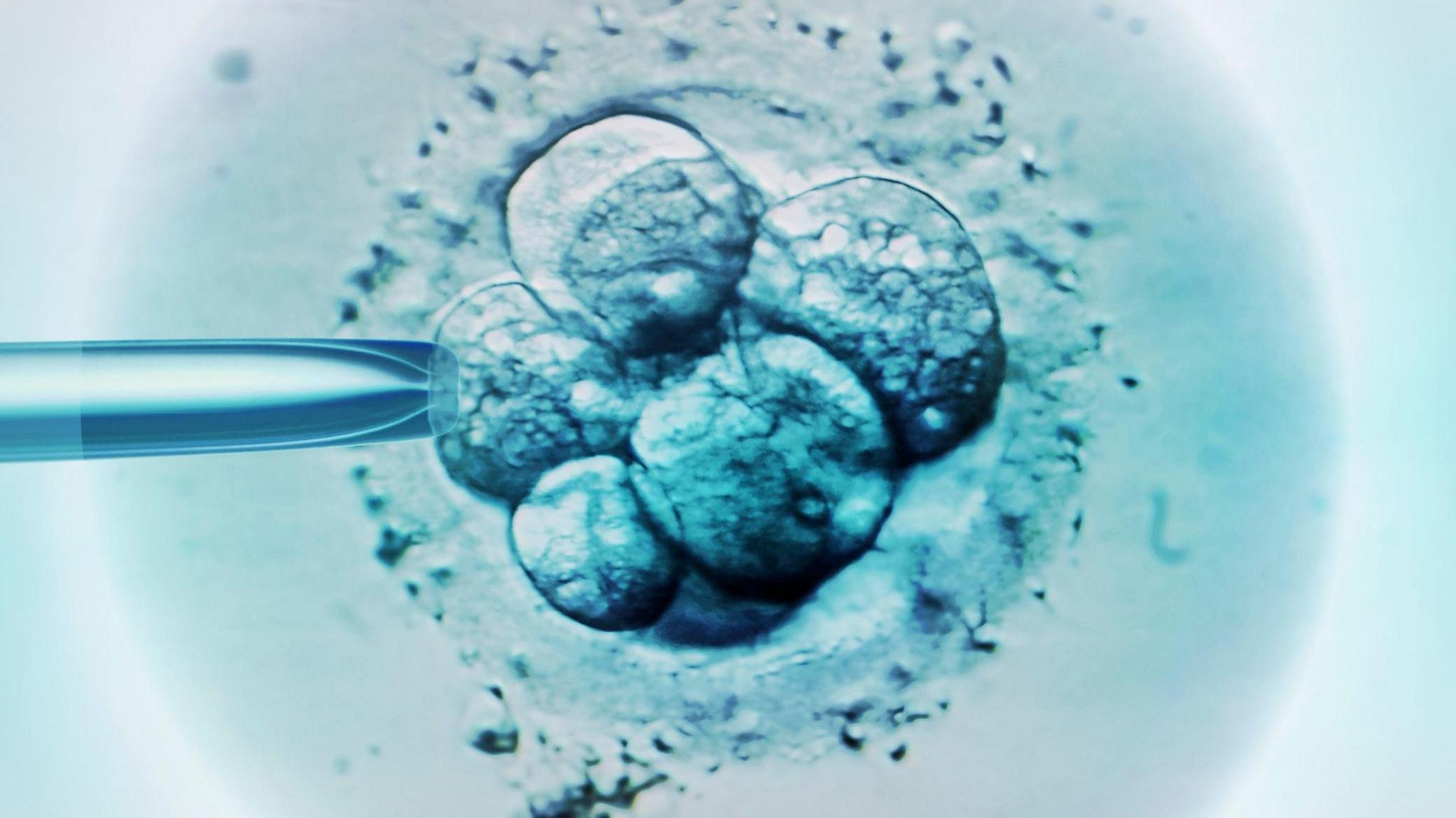
- Published11 September 2024
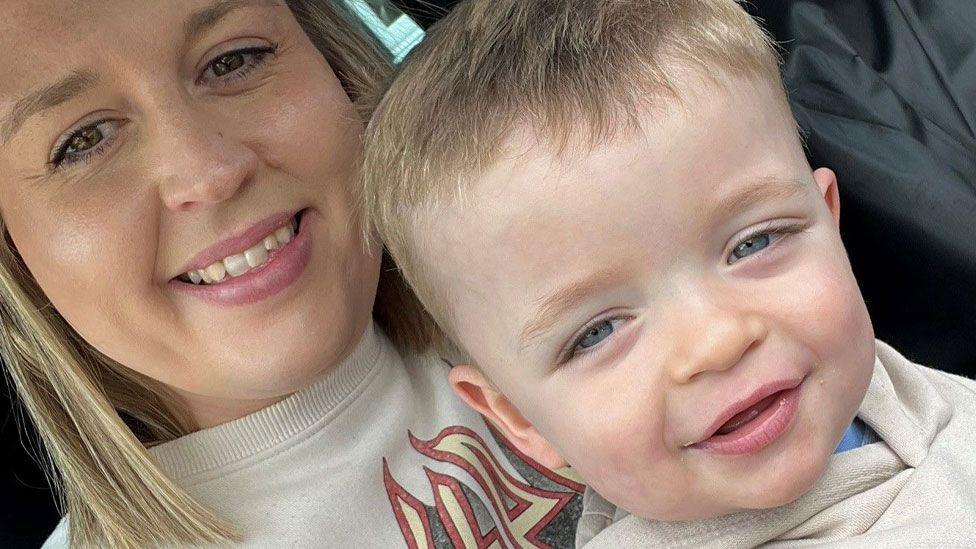
- Published15 March 2024
